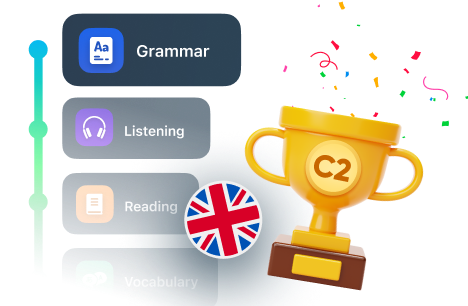Learn English with Personalized Path and AI-powered practice sessions
 Start for free
Start for free
Find correct options for writing and using some words and expressions
The word co-founder vs. cofounder is dependent on whether it is British or American English.
Sometimes the comparative is built into the word itself, and other times it is paired with “more” or “less.” Unlike the term fun, which is a noun in and of itself and is almost always reserved for use with “more” or “less.”
When should they use “on time” and when should they use “in time” and what is the difference? The difference in spelling and pronunciation is minor but they are used very differently.
While you may already know that both the keywords “aboard” and “on board” refer to being on or inside a vehicle, their usage varies depending on the context.
The words “each” and “every” pose a solid obstacle for English learners and even native speakers, as it is pretty tricky to use in sentences.
Autumn and fall are two dissimilar nouns used to portray the period/season that begins after the summer and ends right before winter.
Keep in mind that you risk being totally misunderstood when you pick the wrong verb for your conversations.
Although both words have similar meanings, they are different parts of speech.







